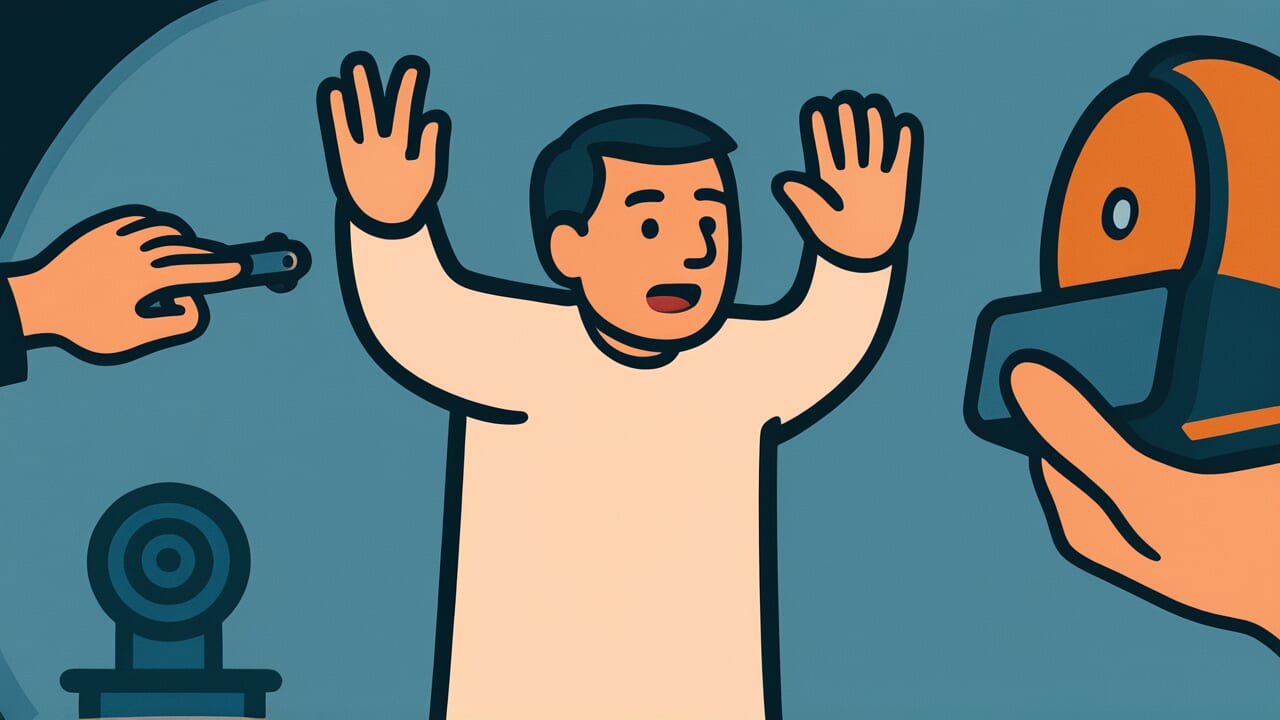How to Read “Expectations break apart on their own”
Ategoto wa mukō kara hazureru
Meaning of “Expectations break apart on their own”
“Expectations break apart on their own” means that our hopes and predictions often don’t turn out as planned. It expresses a life lesson that things we count on or expect to happen somehow fail to come true.
This proverb is used when expectations fall through. For example, when a business deal you thought was certain falls apart at the last minute. Or when someone you were counting on suddenly can’t make it. Or when it rains on a day you were absolutely sure would be sunny.
People use this expression not just to lament disappointment, but to accept it with composure. It teaches the importance of not expecting too much and staying calm when things don’t work out.
Even today, when plans fall through, remembering this proverb helps us stay flexible and adapt to changing situations.
Origin and Etymology
The exact origin of this proverb in historical texts is unclear. However, we can make interesting observations from how the phrase is constructed.
“Ategoto” means expectations, predictions, or things you count on. This expression was widely used among common people during the Edo period. It referred to all kinds of daily expectations like business prospects, help from others, or weather predictions.
The phrase “mukō kara hazureru” (break apart from the other side) is particularly noteworthy. It doesn’t say you fail or miss the mark. Instead, expectations break apart “from the other side,” as if by their own will.
This phrasing suggests forces beyond human control or effort. It personifies expectations as if they have their own will and choose to leave you.
This expression likely emerged from the lived experience of Edo period common people. They faced agriculture dependent on weather, uncertain business ventures, and people suddenly becoming unavailable.
Through repeated experiences of expectations crumbling, people developed a resigned acceptance that “expectations naturally fall apart.” This proverb was passed down as wisdom for living positively despite this reality.
Usage Examples
- I planned to buy a new car with my bonus, but expectations break apart on their own—it got unexpectedly reduced
- She said she’d come so I was looking forward to it, but expectations break apart on their own
Universal Wisdom
The proverb “Expectations break apart on their own” contains deep insight about the relationship between humans and the future.
Humans are fundamentally creatures who predict the future and form expectations. We worry about tomorrow’s weather, calculate next month’s income, and make plans for next year. This ability is what makes us human.
But this same ability also becomes a source of suffering. The bigger our expectations, the greater our disappointment when they fail.
This proverb has been passed down for hundreds of years because it recognizes this fundamental human nature. We cannot stop expecting things. Expectation is hope itself, which is essential to living.
Yet expectations are often betrayed. How should we live within this contradiction?
The answer our ancestors found was to hold expectations without clinging too tightly to them. The phrase “break apart from the other side” contains wisdom to accept disappointment as the way of the world, not as personal failure.
This balance between expectation and acceptance is timeless wisdom for navigating life, no matter the era.
When AI Hears This
In quantum mechanics, when you try to measure an electron’s position, the light used for measurement hits the electron and changes its velocity. The act of observation itself disturbs the object. This “observer effect” has a similar structure to the relationship between human expectations and outcomes.
“Ategoto” (expectations) is a strong anticipation of the future—in other words, an attempt to observe the future in advance. When you buy a lottery ticket expecting to “definitely win,” your brain simulates the post-winning scenario repeatedly.
The more simulations you run, the higher the probability that the gap between expectation and reality grows. As expectations rise, the range of what counts as “missing the mark” expands.
For example, 500,000 yen disappoints someone expecting 1,000,000 yen. But for someone expecting nothing, it brings great joy. Strong observation (expectation) shifts the interpretive axis itself, transforming the same phenomenon into a “miss.”
In the quantum world, observation changes physical states. In the human world, observation changes psychological states. Both share a remarkably similar structure: the act of trying to see changes what is seen.
The observation device called expectation collapses the uncertain state called the future.
Lessons for Today
This proverb teaches modern people how to maintain a healthy relationship with expectations.
Modern society emphasizes planning and goal-setting. Career plans, life designs, investment strategies—everything is treated as if it were predictable. But this proverb offers a different perspective. No matter how carefully you plan, things can fall apart. That’s life.
This doesn’t mean you shouldn’t have expectations. What matters is keeping your expectations flexible. When Plan A fails, move to Plan B. When one path closes, maintain the composure to find another.
Assume expectations will sometimes fail, and prepare multiple options.
Also, when expectations fail, don’t blame yourself too harshly for failure. As the phrase “break apart from the other side” suggests, it’s not necessarily due to your lack of ability. The world contains many unpredictable things.
Hold expectations without clinging to them. Plan while staying flexible. This wisdom becomes the strength to survive uncertain times.



Comments